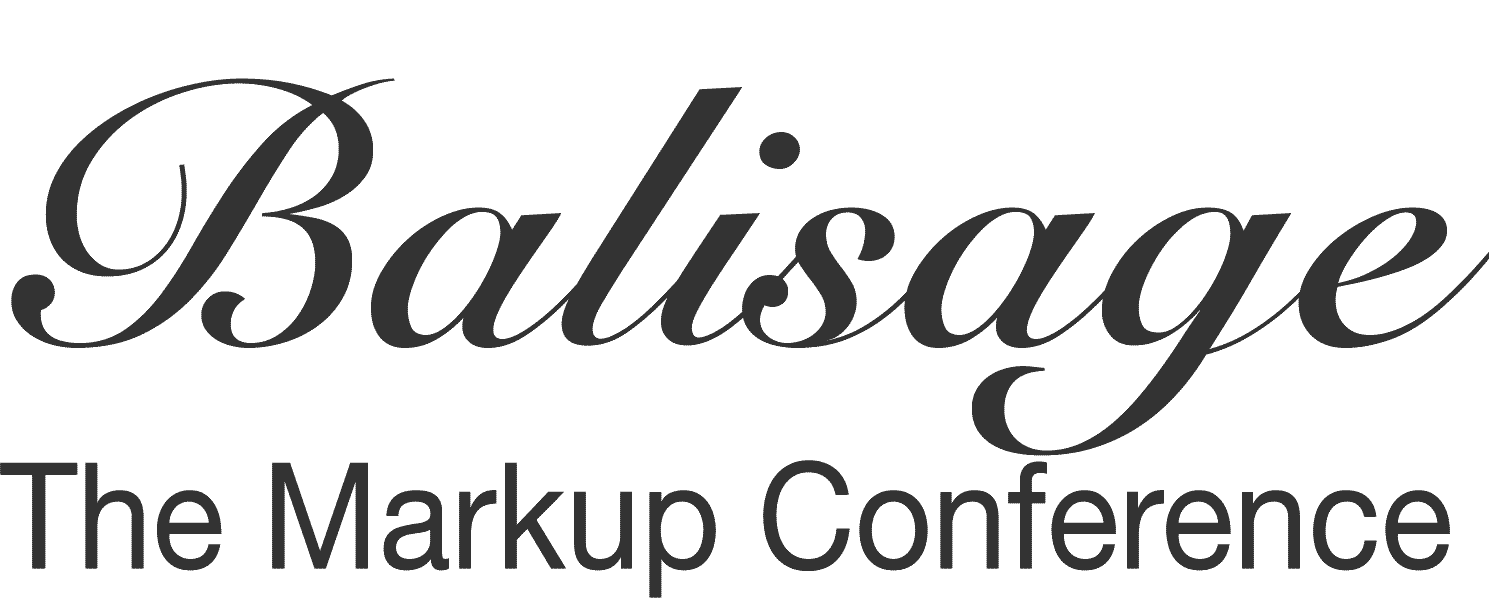from James David Mason
Once upon a time, Michael Sperberg was Charlie Brown. That is to say, he had the lead role in “You’re a Good Man, Charlie Brown” in 1972. And here he is, acting the part, in a cast photo:
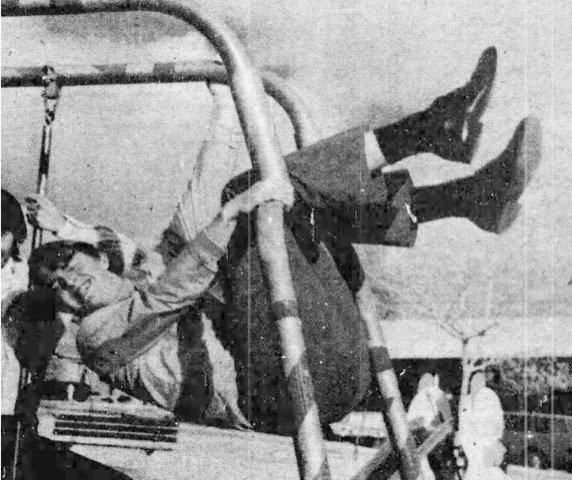
Yes, this is the future erudite Dr. Sperberg-McQueen.
He looked a little more like someone we might recognize the year before, in Woody Allen’s “Don’t Drink the Water”:
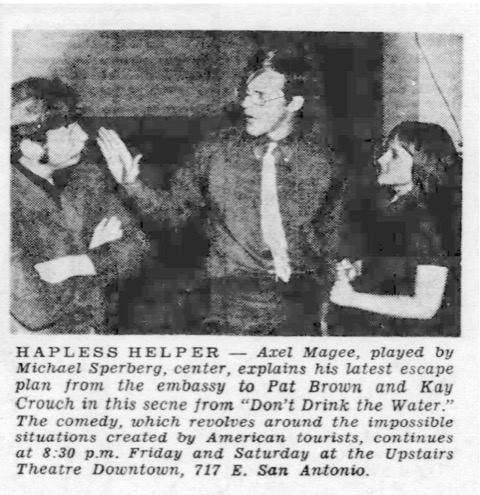
Michael was serious about acting; he said he wanted to study English and drama in college, hoping to become a professional actor. He wasn’t just an actor back then: he won a competition for original oratory and another for playwriting.
He also played bassoon (and was selected for the all-state orchestra) and drum:
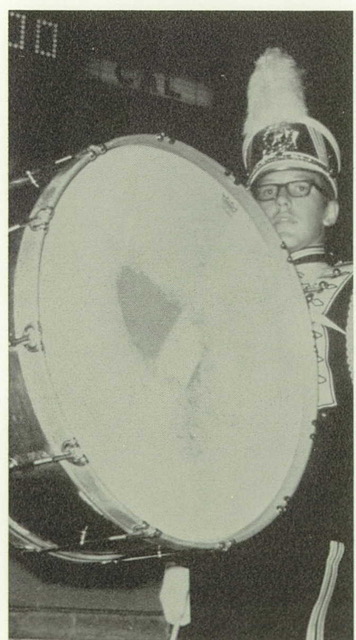
Sitting for his senior portrait in 1972:
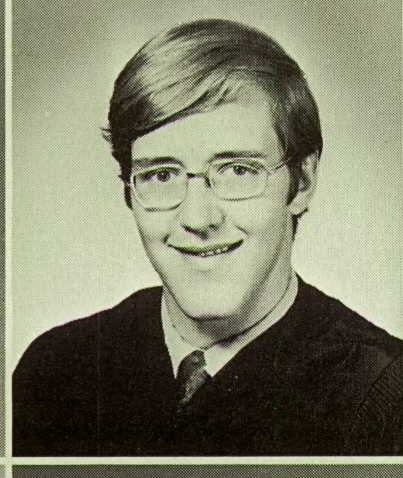
So how does this fit with the Michael we know? Besides demonstrating he was always multi-talented, the stage and oratory experience prepared him for the poise and the clarity of the resonant voice we know from his many presentations. And drama pushes the actor into seeing the minds and personalities of others. Several people have recently remarked on Michael’s skill in technical committees for seeing other participants’ ideas and drawing them out.
Michael went to Stanford and fell into comparative literature. He didn’t leave drama entirely behind—his senior honors thesis was on one of Berthold Brecht’s plays. Then for his doctorate, he turned to much earlier times with "An analysis of recent work on Nibelungenlied poetics”. The path Michael took at Stanford leads, of course, to his later work with literary material and TEI. But the particular topic of the dissertation—poetics—is also a good indication of his love of deep detail and structure in literature, a foreshadowing of his work with markup.
Michael’s musical side didn’t disappear, either. For Balisage 2009 in Montréal, he collaborated with my wife, Bettie, to write a Balisage song, a parody of “Bali Ha’i”:
Balisage will whisper
Through the nodes of the tree:
“Here am I, your special conference! Come to me, come to me!”
Although Bettie sang for that occasion, Michael sang one of his own parodies for a session of Balisage Bard.
A much more familiar Michael in Montréal, 2006
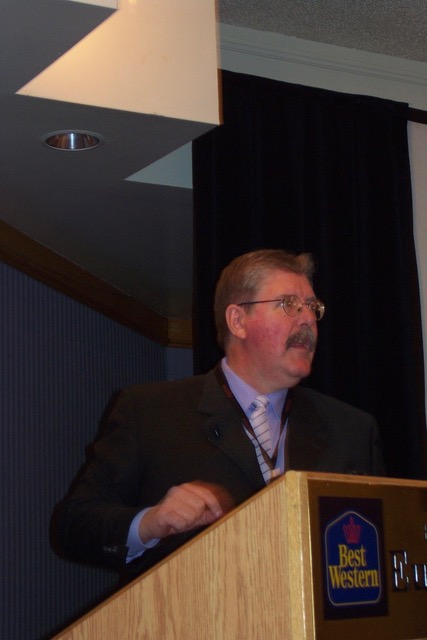
I first encountered Michael sometime in the late 1980s. I was chairing ISO/IEC JTC1/SC18/WG8 (now ISO/IEC JTCI/SC34), which had just completed SGML and we were hoping for implementations of our work outside the government. Michael contacted us as a liaison from TEI, and we were delighted to have that application expand our range. I then met him through the GCA conferences that came before Balisage. I remember that his closing summaries were impressive back then. Before we started Balisage as an independent conference, the Montréal conference was GCA's “Extreme Markup Languages”. I got to know Michael even better when I joined the Extreme committed after GCA folded the conference I had chaired, “Knowledge Technologies” into Extreme. Through the succeeding two decades I have always been impressed by the care and detail that went into Michael’s comments on submissions. While all the committee members read all the papers, most of us have time only to make simple decisions about whether to accept a given paper. But Michael took the time to write essays of extensive comments and suggestions for the authors. That teaching effort was evidence he never fully left the academic world; it will be missed by both the authors and the committee.
James David Mason
